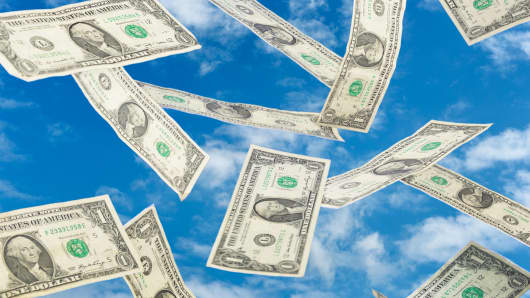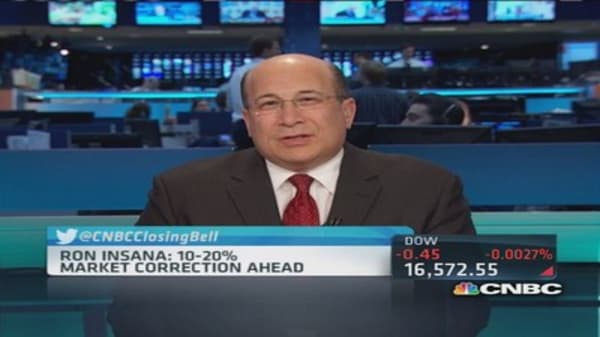With that as background, I ticked off a mental check list that included the typical reasons a currency falls in value, asking myself whether the checklist was applicable to the dollar's recent descent:
Weak economic data? Maybe, but not really. There has been weather-related softness in the data, but the labor markets are improving and we are likely to see more "green shoots" in second- quarter economic numbers here at home.
Read MoreNo need to panic over last week's selloff: NYSE floor trader
Easier monetary policy? Federal Reserve policy is still very easy, but quantitative easing is being reined in, leaving U.S. monetary policy a bit "tighter" than that of most other central banks, save for the Bank of England.
Rising domestic inflation? Nope.
Ballooning budget and trade deficits? They are all declining faster than anticipated, reducing the need to borrow money from abroad and reducing the risk of a fiscal crisis in the U.S.
Falling U.S. asset prices? Yes, but that typically prompts a flight to quality in the U.S. dollar, as we saw from 2008 to 2009, and during other major market declines of recent vintage.
Mass selling of U.S. assets by overseas investors? Possibly. However, that phenomenon would typically also be accompanied by rising interest rates, as U.S. Treasury holders dumped bonds, prompting a decline in bond prices and an accompanying jump in yields. Even if Russian and Chinese investors are reducing their bond holdings, and we're certainly not sure the Chinese are doing that, it's not showing up in the bond market, so it's a dubious explanation, at best.





